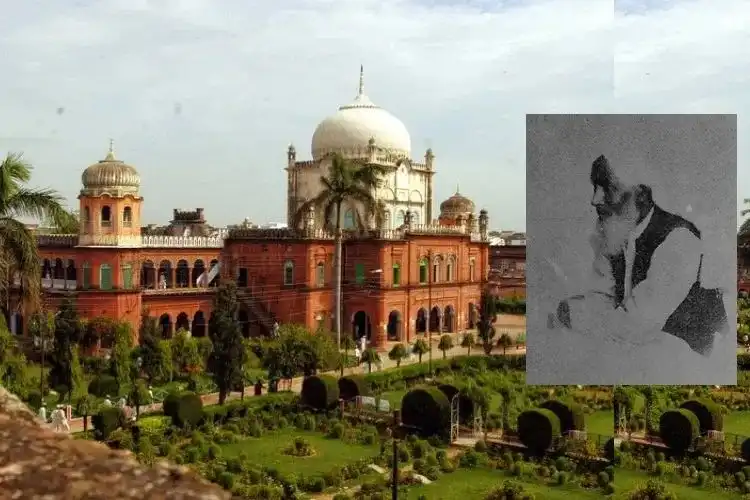
 Saquib Salim
Saquib Salim
Maulana Mahmud Hasan was one of the most illustrious Muslim scholars of the late 19th and early 20th centuries. Considered an authority on Islamic scriptures, he headed Darul Uloom, Deoband (Uttar Pradesh), one of the most prominent institutions of Islamic learning in the world. What sets him apart from others is that Hasan tried to bridge the gap between Islamic scholars and western-educated Indian Muslims. While earlier, traditionalists had accused Sir Syed-led Aligarh Movement as a heretic, Hasan argued that western education was not the problem but to become slaves of colonizers as a result of that education was.
In 1916, the British intelligence unearthed a ‘conspiracy’ by Indian nationalists to oust it with the help of Turkey, Germany, and Afghanistan. It was called ‘Silk Letter Conspiracy’ and Hasan was named its mastermind. He was arrested and imprisoned at Malta island along with Maulana Husain Ahmad Madni. He was released in 1920, after the first World War and he received a heroic welcome from Mahatma Gandhi and others. Around this time, Gandhi was leading Khilafat and Non-cooperation movements after the Jallianwala Bagh massacre. Hasan announced his allegiance to these causes and advocated non-cooperation.
During the movement, Gandhi, Shaukat Ali, Mohammad Ali, Dr. Ansari and others asked the students at Aligarh to either force the college administration to give up the government funding or leave the college. Maulana Mahmud Hasan supported this appeal and on 29 October 1920, when the nationalist students of Aligarh established a National Muslim University, later called Jamia Millia Islamia, after leaving the college, he was invited to preside over the ceremony.
Also Read: Maulana Shaukat Ali: An advocate of Hindu-Muslim unity
On this occasion, Hasan’s presidential speech was read because of his poor health due to years of imprisonment. This address sums up the social, political, and religious thought of one of the most influential Islamic scholars of the last century. What he told his audience that day remains relevant in today’s India.
Maulana Mahmud Hasan asked for the decolonization of education. It is not harmful to study English, western sciences, philosophies, and other European knowledge but, he argued, experience has proved that the English education as prophesied by Macaulay has produced slaves of a Christian-European empire. People receiving education from these institutions mock the culture and religion of the East. Hasan compared this education with slow poison that is being fed to the students as milk. A nation, which wants to preserve its culture, should not rely upon the aid of foreigners. Only through education, in his view, can a nation prosper and move ahead. However, Hasan warned, an education controlled by an enemy can never develop a nation; it will produce ‘cheap slaves’ for them. Education free from the foreign intervention that teaches students about religion, culture, and nation is a must for overall growth.
He also addressed those people who used to argue against Hindu-Muslim unity in the Indian Freedom Struggle. They argued that Islamic scriptures do not allow Muslims to accept the leadership of Hindus and be friendly with them. I do not need to explain that these were the English agents, who wanted to weaken a national struggle against the empire, he told them, in his address.
Maulana Mahmud Hasan used references from the Quran to bring home the point that alliances from Hindus and Sikhs towards Muslims should be welcomed as a bounty of Allah. He argued that the Quran directed Muslims not to fight with those non-Muslims who did neither stop them from practising their religion nor did they force them out of their homes. Rather, Muslims are directed to behave with justice and civility with non-Muslims, who do not cause harm. Muslims, he argued, are not stopped from befriending non-Muslims or having alliances with them if they do not cause harm.
The address in a nutshell lays down the importance of a nationalist educational curriculum, which teaches students to take pride in their culture and religion, and Hindu Muslim unity for the future development of the nation.
(Squib Salim is a writer and a historian)
